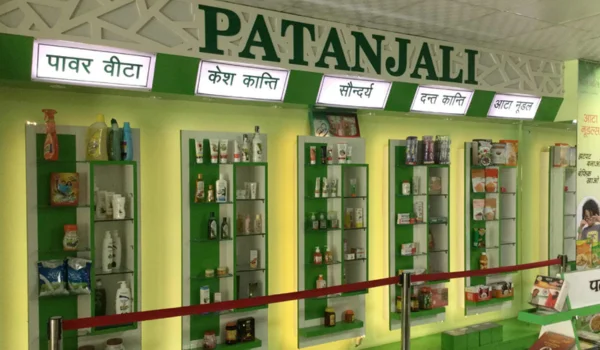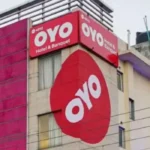Patanjali Ayurved, founded by Baba Ramdev and Acharya Balkrishna in 2006, has emerged as one of India’s most trusted FMCG brands—offering Ayurvedic medicines, wellness products, personal care, foods, and home care items with a strong ethical agenda and a mass brand following.
Franchisees benefit from:
- 100% retention of sales: Patanjali charges zero royalty, maximizing profits.
- Huge product range: Over 500+ items spanning healthcare, personal care, foods, household products.
- Strong brand recall: Especially in semi-urban and rural markets.
💰 Franchise Models & Investment Breakdown
Patanjali offers multiple franchise formats tailored to various budgets and market needs.
📊 Investment Table
| Model | Area (sq.ft.) | Estimated Investment | Security Deposit (refundable) | Typical Profit Margin | ROI/Break-even |
| Gramodyog Nyas / Arogya Kendra | 200–500 | ₹5–10 L | ₹0.018 L each via DD (~₹9 K×2) | ~15–20% | 16–24 months |
| Chikitsalaya (health clinic) | 750–1,000 | ₹10–20 L | ₹1 L +₹1 L DD (~₹2 L total) | ~15–25% | ~1–2 years |
| Mega Store / Retail Store | 1,000–2,500 | ₹50–70 L / up to ₹1.5 Cr | ₹5 L (₹2.5 L each in Divya & Patanjali) | ~10–20% | 12–24 months |
Notes:
- Mega Stores require prime locations, distancing rules from existing units (2.5 km in metros, 3.5 km in non-metro cities).
- Smaller formats (Chikitsalaya/Arogya Kendra) have lower capex, quick setup, and are ideal for semi-urban markets.
🏗 Franchise Model & Support Structure

Franchise Format Options
- Mega Store: Large-format retail offering full range including medicines, packaged foods, personal care, and home products. Requires well-structured retail infrastructure and a designated Ayurvedic physician (Vaidya) on-site.
- Chikitsalaya with Arogya Kendra: Health consultation combined with retail, ideal for neighborhoods and near hospitals. Requires a smaller footprint (750–1,000 sq.ft) with moderate investment.
- Gramodyog Nyas / Rural Arogya Kendra: Simple outlets in rural areas or low footfall towns; minimal capital and quick setup (~₹2.5–3 L).
Franchisee Support
- Training: Provided on product knowledge, sales, billing, inventory and customer service operations.
- Marketing Assistance: Occasional campaigns, launch support, signage branding; minimal or no ongoing marketing fees for franchisee.
- Supply Chain Access: Regular bulk procurement, promotional offers, and stock management guidance.
- Brand Leverage: Instant trust and walk-in traffic due to product loyalty and brand identity.
- Zero Royalties: No earning deductions keep operations profitable for the franchisee — quite rare in FMCG retail.
📈 Financial Outlook & ROI Insights
Revenue & Margin Estimations
- A Mega Store in a busy urban area can generate monthly revenue of ₹10 L to ₹30 L or more. With franchise margins of 10–20%, net profit could run ₹1–3 L per month ~₹12–36 L annually.
- A Chikitsalaya or Arogya Kendra can deliver ₹2–5 L monthly sales, with margins of 15–25% giving ₹30 K–1 L monthly profit ~₹6–12 L annually.
Payback & ROI
- Mega Stores investment (~₹50–70 L) may break even in 12–24 months, with higher visibility and volume for faster returns.
- Chikitsalaya / Arogya Kendra (~₹10–15 L investment) expect ROI within 1–2 years with steady footfall.
- Gramodyog Nyas is even faster at ~18–24 months or less due to minimal upfront and easy setup.
Margin Range
- Gross margins across product categories range from 10–20%, with promotional margins through festivals/events.
- Net profitability depends heavily on location, inventory turnover, and cost management.
✅ Eligibility & Ideal Franchisee Profile
Prospective franchisees should meet:
- Financial Readiness: Ability to invest ₹10 L–₹1.5 Cr depending on format, plus working capital reserve.
- Space Requirements:
- Mega Store: 2,000+ sq.ft
- Chikitsalaya: 750–1,000 sq.ft
- Arogya Kendra: 300–500 sq.ft
- Rural: ~200 sq.ft minimum
- Location Compliance: Distance from existing store units as per norms.
- Documentation: PAN, Aadhaar, GST, trade license, sales registration, property documents, no criminal record.
- Operationalness: Motivation to run retail outlet, manage staff or healthcare associate, and remain aligned to Patanjali ethos (Ayurvedic/Natural).
📝 How to Apply – Step-by-Step
- Submit Application: Visit official Patanjali portal and fill the franchise enquiry/applicability form (Mega Store / Chikitsalaya / Arogya Kendra / Gramodyog Nyas) with location details and documents.
- Document Submission: Attach PAN, Aadhaar, rent/ownership deed, photographs, identity proofs, etc.; pay required DD(s) for security deposit.
- Screening & Site Validation: Patanjali conducts location audit, demographic check, and existing store proximity analysis.
- Agreement Finalization: Signing of franchise contract, payment of refundable deposits (e.g., ₹5 L for Mega Store, ₹1–2 L for smaller formats).
- Set‑Up Phase: Infrastructure fit‑out (shelves, counters), initial stock procurement, staff training.
- Launch & Operations: Store opening with launch promotions. Vaidya present at Mega Store / Chikitsalaya where applicable.
- Ongoing Support & Compliance: Stock replenishment, marketing updates, audits, and periodic training refreshes.
⚖️ Pros & Potential Risks
✅ Strengths
- Strong brand trust and widespread consumer recall.
- Wide product range and repeat sales with loyal customers.
- No royalties—100% revenue retention.
- Flexible formats to suit different budgets and markets.
- Support system for onboarding and operations.
❌ Things to Watch
- Thin margins: FMCG retail is highly competitive. Profitability depends on high inventory turnover and low operational costs.
- Location governance compliance: Must maintain mandated distances and standards; new stores face rejection if too close to existing ones.
- Legal issues: Patanjali has faced controversies over misleading product claims and brand representation recently.
- Operational intensity: Retail requires constant supervision; staff variability can affect customer experience. Reddit warnings indicate that franchise businesses often operate on thin net margins and rely greatly on effective management for returns.
💡 Pro Tips for Prospective Investors
- Visit existing franchises of all formats to gauge footfall, pricing, and efficiency.
- Talk to current franchisees about real sales consistency, support response, and margin sustainability.
- Review contract terms carefully—exit clauses, renewal fees, deposit refund terms.
- Maintain 3–6 months’ reserve capital before launch to handle operational lag.
- Choose locations with high footfall and minimal brand overlap, and ensure compliance with store-distance rules.
- Train staff rigorously to deliver consistent service, especially where Vaidya consultations or health services are scheduled.
🧾 Summary Quick Reference
- Investment Range:
- Arogya Kendra: ₹5–10 L
- Chikitsalaya: ₹10–20 L
- Mega Store: ₹50–70 L (up to ₹1.5 Cr)
- Area:
- 200–500 sq.ft (small), 750–1,000 sq.ft (clinic), 2,000+ sq.ft (mega store)
- Security Deposit:
- ₹9K×2 (small), ₹2 L (clinic), ₹5 L (mega store)
- Profit Margin:
- ~15–25% (small/clinic); 10–20% (Mega)
- ROI Timeline:
- 16–24 months (small/clinic); 12–24 months (Mega)
- Royalty: 0%
- Contract: Approx. 3–5 year engagement
- Requirements: PAN, GST, rent deed, viability, compliance with distance norms
🎯 Final Verdict
A Patanjali franchise—whether as a wellness clinic (Chikitsalaya), rural Arogya Kendra, or full-fledged Mega Store—offers flexible investment entry points into India’s growing market for Ayurvedic and FMCG products. With zero royalty, trusted brand equity, and a strong product basket, franchisees can build a profitable retail business in 1–2 years, provided location, operations, and inventory management are well handled.
Given minimal ongoing fees, scaling is possible with disciplined support and repeat customers. Nonetheless, prospective operators must do diligent location scouting, clarity on legal terms, financial modelling, and operational readiness for a service-driven retail business.

Shashi Kant is the Founder and Editor of BusinessScroller.com, a leading platform for business insights, finance trends, and industry analysis. With a passion for journalism and expertise in business reporting, he curates well-researched content on market strategies, startups, and corporate success stories. His vision is to provide valuable information that empowers entrepreneurs and professionals. Under his leadership, BusinessScroller.com has grown into a trusted source for in-depth articles, customer care guides, and financial expertise.


